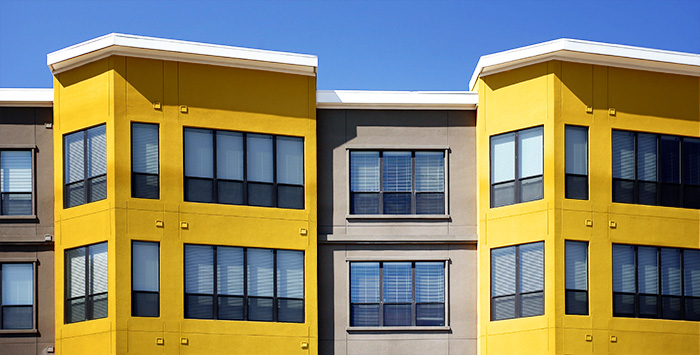
How condo financing is different from single-family homes
Condos meet the needs for many homebuyers, including city-dwellers, empty-nesters, singles, and long-term renters ready to own. But condo financing one introduce some surprise requirements, even for seasoned homeowners. Let’s sift through the unexpected complexities of condo shopping to help inform your next condo purchase.
Less expensive, but not cheap
While condos generally cost less than single family homes, they may not be the easiest first stage for budget shoppers. Condos may require a much larger down payment and/or higher interest rates. So, while single family borrowers may be able to put only 5% down on a $300,000 home, a condo which costs $95,000 requires a 20% down payment. FHA loans may be a good option for those with less in the bank, requiring as little as 3.5% down for those who qualify, but expect to pay mortgage insurance and adhere by new development requirements. HOA fees also add to the advertised price, and inner-city condos may charge you separately for a parking spot.
It’s not just your condo, it’s the whole development
Condo lenders need to look at the buyer’s financial situation and the health of the community when determining if they can lend and provide condo loans and financing options. Since the condo association manages common areas, you are not solely responsible for your investment. If the condo association has financial problems, or doesn’t have full responsibility of the condo complex, they may not have the required creditworthiness. The largest government-backed loan entities each have a set of requirements that every condo association has to meet, and use the term ‘warrantable’ to describe a property they will finance.
Here are some signs that the community you want to buy in is warrantable:
- The majority of the units are owner-occupied or second homes. (There are a few more stipulations related to this but basically they want people living in the units as opposed to most of the units purchased by a rental or time-share entity with a revolving door of occupants.)
- Fewer than 15% of the units are 60 days or more past due for association fees.
- Commercial space accounts for 35% or less of the total building square footage
- It’s a townhome – while you still pay HOA fees, lenders treat townhomes like single-family homes
- It has under 4 units
New development considerations
New developments also have some stipulations. While developers may offer move-in discounts to fill units prior to completion, this may not be in your best interest as a buyer. Incomplete projects are non-warrantable as well as complete projects where the developer still has control over the HOA. If you are applying for an FHA loan, at least 70% of the units must be sold if you are buying in a new development.
Litigation headaches
Many HOAs get involved in ‘construction defect’ litigation in order to recoup maintenance expenses from existing construction issues. Although this helps the community pay for improvements, it also makes it unwarrantable during the time any litigation is taking place.
Options for non-warrantable condos
Even if your dream condo falls into the non-warrantable category all is not lost! Guild has a non-warrantable condo loan and financing option for new construction, condo-hotels and communities with commercial space up to 50%. Discuss with your lender if this option will work for you.
The above information is for educational purposes only. All information, loan programs and interest rates are subject to change without notice. All loans subject to underwriter approval. Terms and conditions apply.
